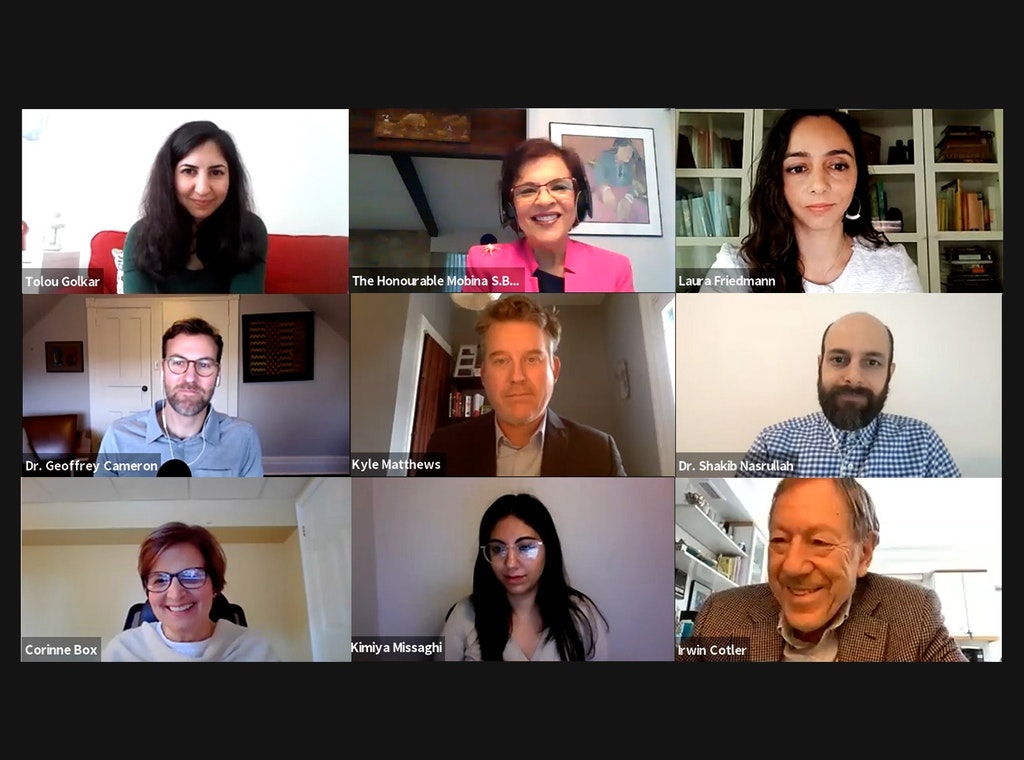Source: news.bahai.ca

“Of course you don’t have the right to go to university; you are a Baha’i.” That is what Tolou Golkar was told by an Iranian official, after she was arrested and interrogated for her involvement in the Baha’i Institute for Higher Education (BIHE). BIHE is an informal educational initiative of the Baha’i community in Iran, which aims to provide advanced education to Baha’is excluded from university because of their religion.
Ms. Golkar was speaking as part of a panel discussion hosted by the Baha’i Community of Canada’s Office of Public Affairs with the Raoul Wallenberg Centre for Human Rights and Concordia University’s Montreal Institute for Genocide and Human Rights Studies (MIGS) in commemoration of Human Rights Day. She is now a Ph.D. student in Biochemistry at McGill University and a member of the Affiliated Global Faculty of BIHE. She was joined on the panel by Dr. Shakib Nasrullah, who studied and taught with the BIHE, and Kimiya Missaghi, a Master’s student at Carleton University who has been researching the resilience of BIHE graduates.
“The purpose of this event was to shine a light on one especially pernicious aspect of the persecution of the Baha’is in Iran – their exclusion from higher education – and to show how Canadian universities are playing a supportive role,” said Corinne Box, Director of Government Relations for the Baha’i community of Canada.
The event began with remarks by the Hon. Senator Mobina Jaffer, Hon. Irwin Cotler, and Kyle Matthews. Kyle Matthews, Executive Director of MIGS, described the general policy of the Islamic Republic toward the Baha’i community: “The policy of the Iranian government is to destroy the Baha’i community as a viable entity. It aims to accomplish this by denying them all fundamental rights of citizenship.” He noted that the response of the Baha’i community has been peaceful and constructive. “They’ve created their own informal arrangement, known as Baha’i Institute for Higher Education, to cater to thousands of young people excluded from university in Iran. Truly, it shows a willingness to come around problems the state places in front of them to block them from blossoming.”
“Education is not a crime,” added Prof. Cotler, “it is a fundamental human right.”
In her remarks, Senator Jaffer said, “As a Muslim woman and a practicing Muslim, I want to tell you: I am not proud of what the Iranians are doing in the name of faith. I am not proud of it. And I’m very angry that they use my faith.” She told participants that earlier in the week she asked the Government Leader in the Canadian Senate to urge the Government to speak up against the persecution of Baha’is in Iran. This followed upon a letter she co-signed with several other Senators to the Minister of Foreign Affairs, François-Philippe Champagne, urging him to call for the release of prisoners of conscience – including the Baha’is – due to COVID-19.
During the panel discussion, Dr. Nasrullah talked about his experience as a child attending school in Iran. He recalled lacking self-confidence as a student, because teachers would espouse anti-Baha’i prejudice. “We were frequently told by our teachers at school about how [people] slaughtered Baha’is in their cities and villages.” He said that what gave him hope was the opportunity to study with the BIHE, even though universities systematically block Baha’is from studying. Earlier this year, he defended his Ph.D. in Counselling Psychology at McGill University.
Ms. Golkar recalled an experience in 2011 when her home was raided by Iranian Intelligence officials and she was later arrested in connection to her involvement as a Biology Instructor with the BIHE. She had returned to Iran to teach and work at a private lab after receiving an MSc from the University of Leicester. However, after the re-arrest of one of her close friends she decided to leave Iran to pursue her Ph.D. at McGill University.
The resilience of BIHE graduates, like Ms. Golkar and Dr. Nasrullah, has been the subject of Ms. Missaghi’s graduate research. She noted the high achievement rates among BIHE graduates, many of whom have struggled and sacrificed to pursue higher education. This resilience, she suggested, is “the capacity to build, resist, define, and redefine yourself and your experience in the face of injustice.”
By depriving Baha’is of their full rights to education and equality as citizens, noted Ms. Missaghi, “all that’s doing is depriving Iranian society of its true potential.”
Prof. Cotler emphasized that we need to see each other and act as one united human family: “This must be the message that emerges from us today on UN Human Rights Day and this must be the responsibility of the Iranian leadership to partake of one united human family and put an end to state-sanctioned discrimination and targeting of the Baha’is and protect their rights as guaranteed under the Iranian constitution – for the betterment of the Iranian people as a whole and for the betterment of the human condition as a whole.”
December 23, 2020 11:17 pm
This has me weeping from the depths of my being.